May the force be with you! You probably don't need to be a Jedi knight to solve Star Battle, but maybe it helps? Back on Earth we're building bridges with Hashiwokakero. Plus, all the usual features including:
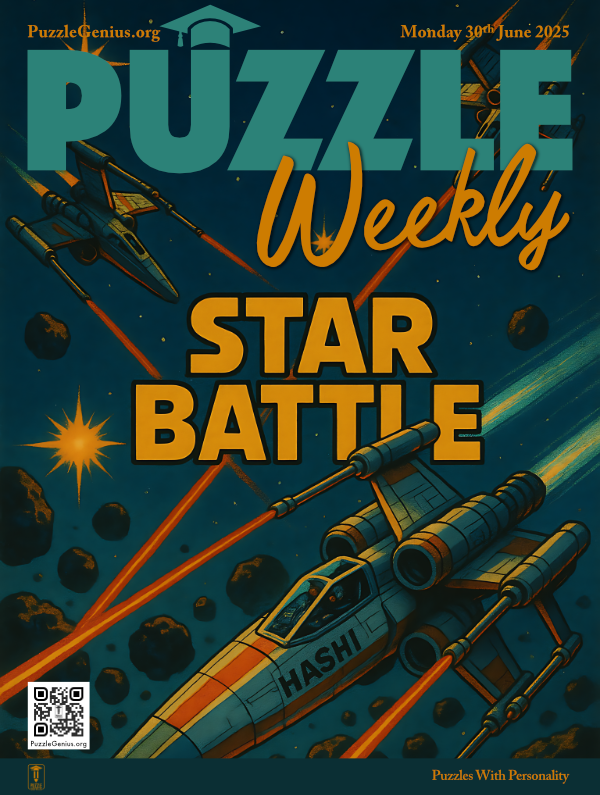
Your brand new issue of your favourite free puzzle magazine is here, and it's filled with pipes – a lot of pipes. Yes, old favourite Pipelink is back! And there's more connections to make this week in Stitches. Plus, all the usual features, including:
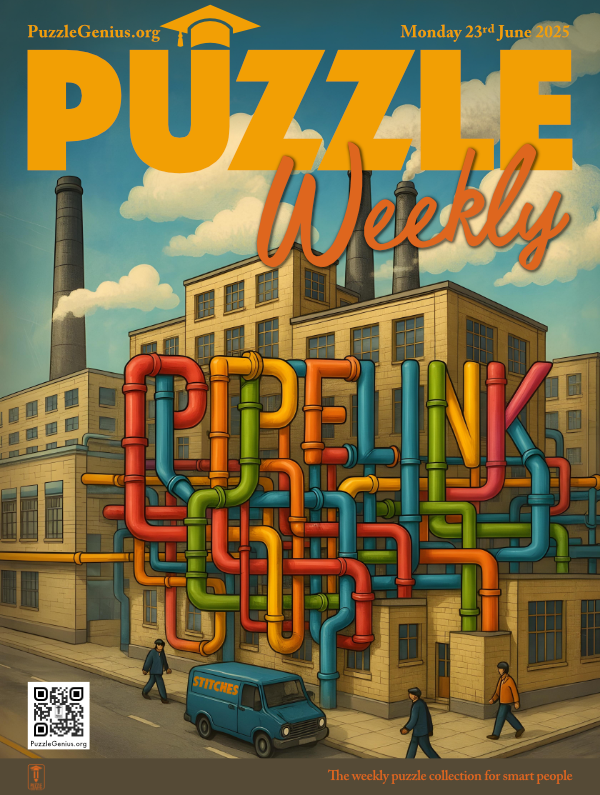
With the summer solstice this Thursday (for those of us in the northern hemisphere), the warm season is truly upon us. So what better puzzle than thermometers? If filling in numbers is more your thing, fear not: we have Yakazu for you. Plus, all the usual features, including:
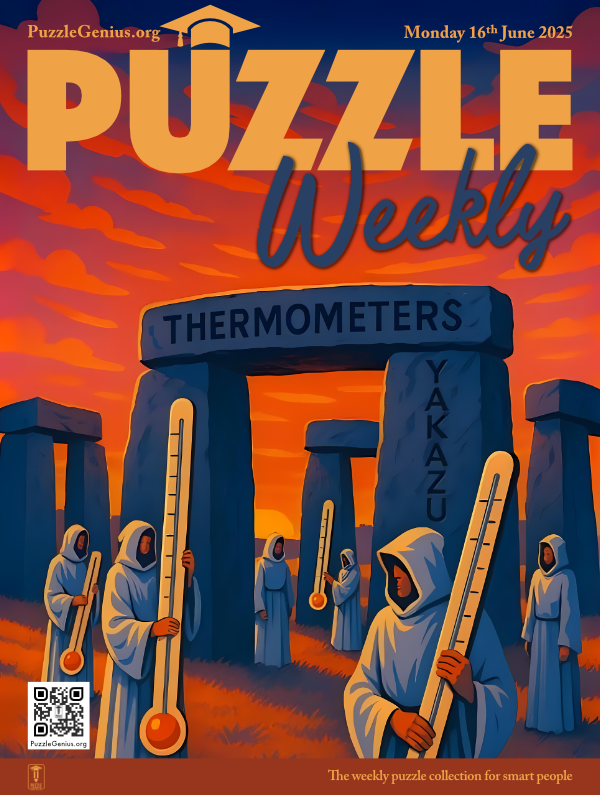
Rather than filling in numbers in a grid, we're crossing them out this week, with Number Cross. And we're taking Sudoku back to its purest form, in Binairo. Plus all the regulars, including:
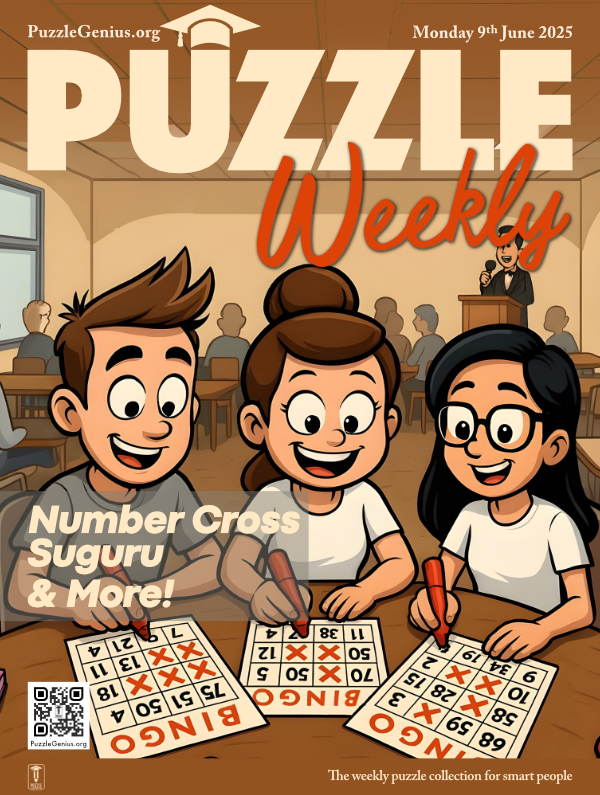
Trigger warning: there be snakes here! But they are friendly ones, really. If you prefer a good old-fashioned number puzzle, we've got Hidato, too. Plus all the regulars, including:
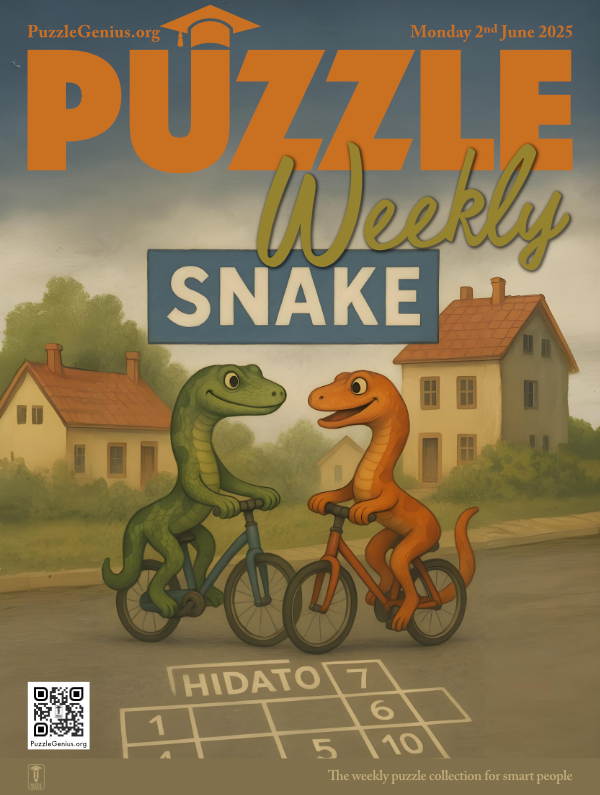
Calling all Killer Sudoku lovers — we’ve got something special for you.
We’ve just launched our brand new Killer Sudoku Challenge Pack — and it’s free!
Seven puzzles. Seven levels of difficulty. One burning question: How far will you go?
Packed with solving strategies, a skill tracker, and full solutions, this challenge is perfect for anyone who loves Sudoku with an extra arithmetic twist. Bragging rights go to anyone who completes all seven. Ready to test your logic?
👉 Click here to find out more and grab your Challenge Pack
Not quite ready to dive in? No problem. Our new three-part Killer Sudoku tutorial series walks you through everything you need to know to get started — including how to use the all-powerful 45 Rule.
The final video takes you step by step through solving the first puzzle from the Challenge, so by the end, you'll be more than ready for level 2.
If you're hungry for more puzzles, we’ve got a whole library of Killer Sudoku books — from quick pocket-sized puzzles to a full year’s worth of daily challenges. Whether you’re after a personal brain workout or the perfect gift for a fellow puzzle fan, there’s something for every killer connoisseur.
🛒 Browse the full Killer Sudoku collection
What do you get if you cross Sudoku and Tetris? Tetromino! Probably. Also, give your brain a mental arithmetic workout with Calcudoku. Plus all the regulars features, including:
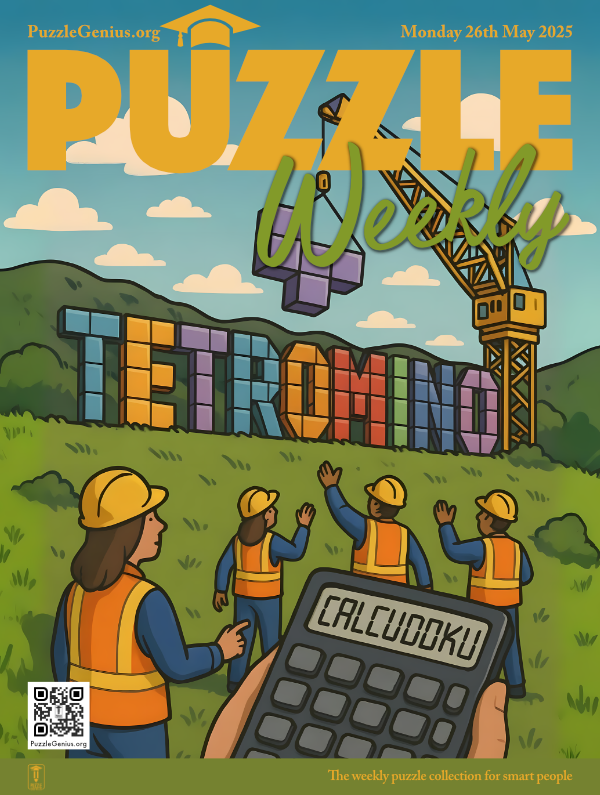
Two? Fine. Three? No problems. Four? No thanks! We're avoiding fours in No Four in a Row. And we're keeping things super-simple (yet devilishly devious) in Binairo Plus all the regulars features, including:
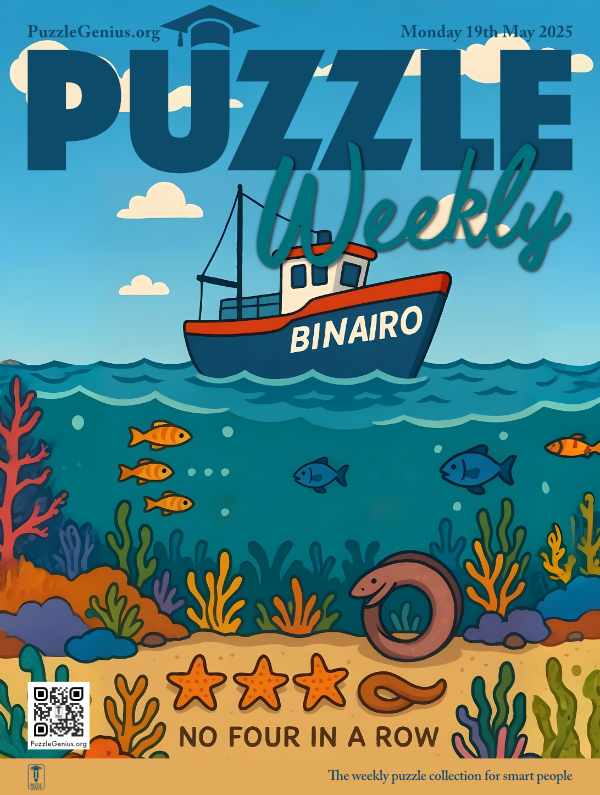
Solving puzzles in two measly dimensions is so last week. This week, 3D thinking is required with Skyscrapers! Good old 2D still has some tricks up its sleeve with Line Segment, too. Plus all the regulars features, including:

If you love learning new puzzles but find written instructions a bit dry (or just fancy a change), we’ve got good news: our puzzle tutorials now come with video!
That’s right, we’ve been quietly building a growing library of step-by-step videos to go alongside the written guides on our site. In each one, Ashley walks you through a puzzle from start to finish, first explaining the rules, then solving it live, all while sharing her thinking out loud.
It’s like sitting beside a very calm, very clever friend who talks you through exactly what to do, and why. Perfect if you learn better by watching than reading, or if you just enjoy a bit of company while you puzzle.
Try it out: Head to any of our tutorial pages and you’ll see the videos embedded right there. Or browse the full collection on our YouTube channel here: Puzzle Genius on YouTube
And if you’re itching to get solving, don’t worry – every tutorial includes a free printable download of puzzles and solutions so you can put your new skills to the test straight away.
We’re adding new videos regularly, so do check back often (or better yet, subscribe on YouTube so you never miss one).
Need more puzzles in your life? Puzzle Weekly is your weekly fix — completely free and delivered straight to your inbox every Monday. Find out more here.